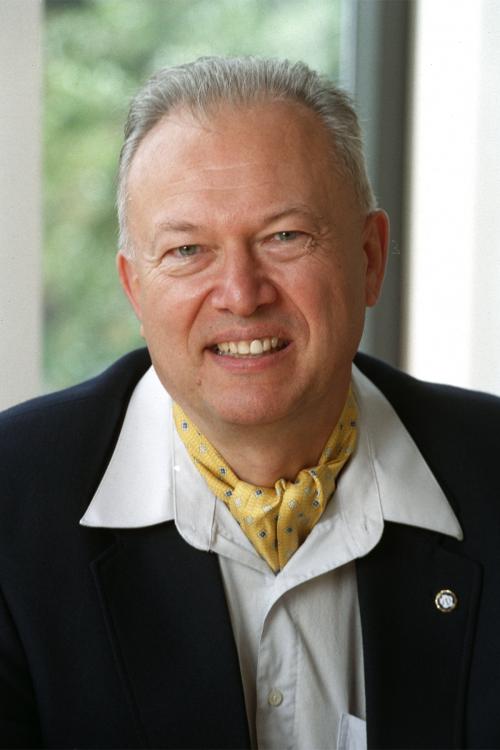
We chatted by phone with Ahmadov (MIDP ’18), on his role with the World Bank, how COVID-19 has impacted his work, and his advice for future MIDP students
What’s your work right now?
I am working as an Economic Consultant in the Office of the World Bank’s Managing Director, Operations, within the Global Reimbursable Advisory Services Unit. Specifically, I work with a team to do portfolio analysis to increase effectiveness of the World Bank operational program as well as to improve the Bank’s support to client countries to achieve their own development goals. We take a look stock of the recent experiences, draw lessons from those engagements, and lay the foundations for a wider RAS strategy for the Bank’s advisory services, and make sure that the programs the Bank provides to the country are as effective as possible
I take a global view in my role under the Managing Director Office, but because I have expertise vis a vis the language and the region, I also do cross-support for the Global Health Practice Groups’ team in the Europe and Central Asia region through analytical work, and the Bank’s financing instrument – Investment Project Financing. .
You may have seen that a couple days ago that the World Bank launched COVID-19 emergency support for countries that are struggling with the impact of coronavirus on the poor and vulnerable. Right now I am working with the Global Health Practice team to prepare and help implement a lending project for the country of Georgia for their coronavirus response. The money will allow them to increase their health capacity and to purchase ICU beds, PPE and other supplies that they need to tackle the virus.
Are you hopeful about the world’s ability to handle COVID-19?
Well, I’m not optimistic, but I am not pessimistic either. There are lots of places to look for hope and positive outcomes, like South Korea for example. But there are other places in the world that are more fragile and less prepared to handle something like this. Those are places I am worried about and places I hope we can help.
How are you holding up personally?
Personally, at first week it was a bit of a challenge. I am used to going to the gym every day after work and seeing friends the weekends. But after a week I realized that this is the new normal. I got a new table and chair and have my new home office set up and things are moving along without disruption. With technology we’re able to continue our work and continue meeting with client countries.
How did you choose the MIDP program?
I grew up in Azerbaijan. After the fall of the Soviet Union, my whole childhood and growing up was marked with conflict and fragility. Growing up in poverty, I always wanted to make a difference for others in similar situations. But, I knew that I needed to find a way to apply my skills and learn new ones. I had worked with NGOs and even co-founded my own community development NGO at home, but wanted to pursue a Master’s degree in international development to make a broader impact through public policy. I actually came across the MIDP program by searching the internet! When I found the program I knew it was what I needed.
Was any course or any professor particularly important to your journey?

Well, you know lots of us in my class joke about “Saint Francis” (Francis Lethem) because he was such an important influence and source of support for all of us. In fact, he was formerly at the World Bank, so he really understands this world and the career paths here. It was really valuable to be able to learn from him.
What advice do you have for folks who are just getting started in the program or who will be coming in for the fall?
I have four pieces of advice:
First, embrace the core courses. They are truly the foundation of the learning and they are important. Get passionate about them. I think about Rosemary Fernholz’s policy analysis class all the time, there is no any single day to ask her “why” question in professional and personal life, and I think about how she would always ask “why?” and challenge us. This way of thinking and questioning is an important professional skill.
Second, after you’ve tackled the core courses, take advantage of the program’s flexibility and specialize in something. Go deep into a topic, whether it’s health or economics or education, whatever it is. Specialization will help you in your career after graduation. You’re lucky in that the program allows you to take courses from across the university so you can build that specialization.
Third, go to the gym! Yes, you will be very busy with lots of deadlines and work, but it’s worth it to take out the time to exercise. It reduces anxiety and clears your head and it actually helps you with your class work.
Finally, take advantage of the close relationships you can have with your professors. They are not just there to guide you in the courses, they can become friends and give you life and career advice too. That’s one thing I valued so much about being there. I felt that the professors and staff gave us so much support and that it will be a lifelong gift.
Featured Audio
Policy 360: He Predicted a Pandemic
Listen our latest episode of the Policy 360 podcast for a discussion about COVID-19 with Gavin Yamey, A Sanford professor who predicted a pandemic in early 2018.
